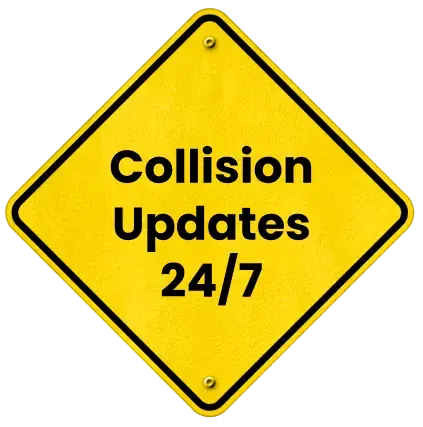
Truck Accidents on I-15: Liability and What Victims Should Know


Interstate 15 is a major commercial corridor running through California, Nevada, Utah, and beyond. Every day, thousands of trucks transport goods along this busy route, sharing the road with passenger vehicles.
Unfortunately, the presence of large commercial vehicles increases the risk of serious accidents. I-15 truck accidents can result in catastrophic injuries, property damage, and significant financial losses for victims. Understanding the common causes, legal implications, and steps to protect your rights is crucial for anyone involved in a semi-truck crash on I-15.
Common Causes of I-15 Truck Accidents
Truck crashes along I-15 often result from a combination of human error, vehicle conditions, and roadway factors:
- Driver Fatigue: Long hours behind the wheel can slow reaction times or lead to dozing, especially on extended stretches of desert or mountain terrain.
- Distracted Driving and Speeding: Using phones, eating, or driving over the speed limit increases the likelihood of collisions.
- Overloaded or Improperly Secured Trailers: Excess weight or shifting cargo can reduce stability, leading to rollovers or jackknife incidents.
- Environmental Hazards: Sudden rain showers in Southern California, high winds across the Nevada deserts, and icy mountain passes in Utah create unpredictable conditions for trucks.
- Congestion in Urban Areas: Heavy traffic near Las Vegas or San Diego can cause sudden braking or chain-reaction collisions.
- Roadway and Infrastructure Issues: Narrow lanes, construction zones, and poorly maintained shoulders leave little room for evasive maneuvers, compounding risks for large commercial vehicles on high-speed roads.
Federal Rules and Regulations for Commercial Vehicles on I-15
Commercial trucks on I-15 are subject to federal regulations enforced by the Federal Motor Carrier Safety Administration (FMCSA). These rules cover maximum driving hours, vehicle maintenance, load limits, and driver qualifications. Violations of these regulations can directly contribute to accidents and establish liability in the event of a crash. For example, exceeding allowed driving hours can demonstrate negligence due to fatigue, while failing to secure cargo properly may indicate a mechanical or procedural fault on the part of the trucking company.
Compliance with FMCSA rules is not only legally required but also essential for safe operation along this heavily trafficked interstate. Drivers must maintain electronic logs, ensure brakes and tires are in proper condition, and adhere to weight restrictions for trailers. These regulations are particularly important when traversing mountainous areas, high desert stretches, and urban interchanges, all of which present unique challenges that amplify the risks of truck accidents.
Safety Measures to Prevent Truck Accidents on I-15
While not all accidents can be prevented, there are proactive steps both drivers and trucking companies can take to reduce risks on I-15.
Commercial drivers should follow mandated rest breaks to prevent fatigue, conduct pre-trip inspections, and adhere strictly to speed limits. Passenger vehicle drivers can reduce accident risks by maintaining safe distances from trucks, avoiding blind spots, and exercising caution during lane changes or merges.
Transportation authorities can also enhance safety by maintaining clear signage, implementing rumble strips, and monitoring high-risk areas prone to congestion or environmental hazards. Public awareness campaigns about sharing the road with large vehicles, especially on long stretches with high speeds or steep grades, can also reduce accident rates.
Steps to Take Immediately After a Truck Accident on I-15
If you are involved in a semi-truck crash on I-15, quick and careful action can protect both your safety and legal rights:
- Ensure everyone is safe and call emergency services if anyone is injured. Move to a safe location if possible, but do not leave the scene entirely.
- Document the accident thoroughly by taking photographs of all vehicles, the surrounding area, skid marks, debris, and visible injuries.
- Collect contact information from drivers, passengers, and witnesses, and obtain the truck company’s details, including the driver’s credentials and insurance information.
- Report the accident to local law enforcement to create an official record, which is critical for future claims.
- Seek immediate medical attention, even for injuries that appear minor, as symptoms like whiplash, internal bleeding, or traumatic brain injuries may develop later. Keep detailed medical records to establish the connection between the accident and injuries.
- Avoid providing recorded statements to insurance companies without legal guidance, since early statements can be used to minimize claims or deny liability.
- Consult an attorney promptly to protect your rights while the evidence is fresh and the crash scene is still documented.
Evidence That Strengthens Your Truck Accident Claim
Establishing a strong claim after an I-15 commercial vehicle accident requires gathering detailed evidence. Police reports are critical, as they often outline the cause, the vehicles involved, and citations issued. Witness statements provide additional perspectives and can corroborate your account of events. Video evidence from traffic cameras, dashcams, or even nearby businesses is invaluable in showing how the crash unfolded.
Medical records documenting injuries are also essential for demonstrating the severity of harm. In complex cases, accident reconstruction experts can analyze skid marks, vehicle damage, and impact angles to determine causation. Photographs of the scene, tire marks, damaged guardrails, or debris from the truck can further strengthen your case. Collecting evidence promptly is vital, as truck accident scenes are often cleared quickly to restore traffic flow. Preserving all documentation and records ensures your claim reflects the full scope of damages.
Determining Liability in I-15 Truck Accidents
Liability in truck accidents can be shared among multiple parties. Drivers may be held responsible for reckless behavior, speeding, or distracted driving. Trucking companies can face liability for inadequate training, vehicle maintenance failures, or pushing drivers beyond legal hours. In some cases, vehicle manufacturers may be liable for defects that contributed to a crash, such as faulty brakes or trailer components.
Road conditions, construction zones, and poorly marked lanes can also play a role in assigning fault. For instance, a recently repaved section without proper signage may contribute to a rollover or collision. Understanding how these factors interact is essential for pursuing full compensation for injuries, lost wages, and property damage. An experienced attorney can help identify all responsible parties and ensure your claim reflects the totality of damages incurred.
Insurance policies in truck accidents can be complex, particularly when commercial trucking companies are involved. Liability limits, corporate insurance, and umbrella policies may affect the amount of compensation available. Having a knowledgeable lawyer guide you through insurance negotiations and claims processes can prevent settlements that fall short of covering long-term medical expenses or rehabilitation costs.
Get in touch with an Experienced I-15 Truck Accident Lawyer
Truck accidents on I-15 can be overwhelming, both physically and emotionally. If someone you care about has been involved in a semi-truck crash, reaching out to an experienced accident lawyer is an important step toward protecting your rights and well-being.
Contact our skilled team of I-5 accident attorneys, who can carefully review your case for free, explain your legal options, and guide you through the process of pursuing fair compensation.
Having professional support ensures you don’t have to navigate complex insurance, liability, and legal issues alone, allowing you to focus on recovery. Taking action promptly can make a meaningful difference in achieving a favorable outcome and securing the assistance and guidance you need during this difficult time.
